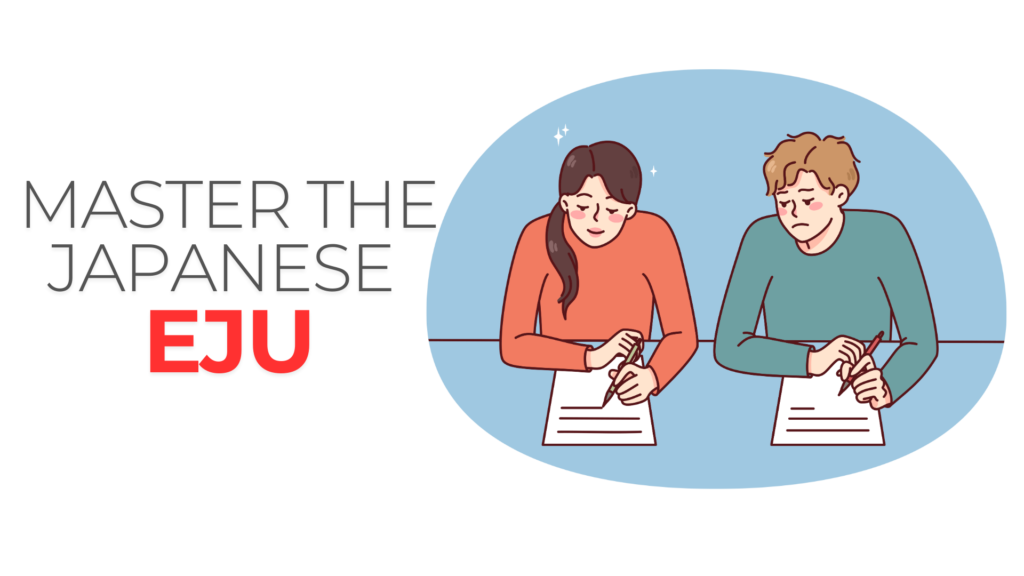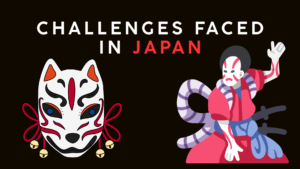Get in touch: hello@1pmcoffee.com
Master the EJU: 7 Proven Tips for Success in the Japanese University Admission Exam for International Students

If you’re aiming to study in Japan, the EJU (Examination for Japanese University Admission for International Students) is a crucial step you can’t skip. This exam is designed to assess your Japanese language proficiency and academic knowledge, and is a key requirement for most universities in Japan. But don’t worry — with the right preparation, you can ace it! In this guide, we’ll break down the EJU and how to prepare for each section to help you secure your spot at your dream university.
What is the EJU?
The EJU is held twice a year, and it’s essential for international students applying to universities in Japan. This exam evaluates not only your Japanese language skills but also your academic ability in subjects relevant to your field of study. The exam is divided into four sections, and you can choose which ones to take based on the requirements of the universities you’re applying to.
Here’s a quick breakdown of the EJU sections:
- Japanese as a Foreign Language (400 points): This section evaluates your reading, listening, and writing abilities in Japanese. For most students, this is the most challenging part.
- Science (200 points): Physics, Chemistry, or Biology — you’ll choose two subjects based on your intended major.
- Japan and the World (200 points): A mix of social studies and world history. This section is more common for students applying to humanities or social science programs.
- Mathematics (200 points): Divided into two levels: Course 1 is for students going into liberal arts, while Course 2 is for science or engineering majors.
2. Set Clear Goals Based on Your Target University
Before diving into preparation, research the specific requirements of your chosen universities. Not all universities require all EJU sections, so understanding what’s needed will help you focus on the right areas. For example, some schools may only require the Japanese language section, while others may need scores in science or math as well.
If you need guidance on understanding the admissions process and requirements for different universities, I offer admission assistance services here. I can help you create a clear roadmap for your application!
3. How to Prepare for Each Section of the EJU

a) Japanese as a Foreign Language
This section tests your Japanese comprehension and writing skills, so you need to focus on the following:
- Reading: Practice reading academic texts, news articles, and essays in Japanese. This will improve your comprehension and speed. If you’re struggling, consider enrolling in a Japanese language course or dedicating time to self-study with textbooks like “Try! Japanese Language Proficiency Test N2.”
- Listening: Listen to Japanese podcasts, news broadcasts, or TV shows without subtitles. This will train your ear for natural Japanese, which is essential for the listening section.
- Writing: Practice writing essays on various topics in Japanese. Be sure to stick to formal language, as the EJU requires academic writing skills.
Struggling with your Japanese? You can also check out my blog on How to Apply to Japanese Universities: A Step-by-Step Guide, where I talk about improving your Japanese for university admissions.
b) Science (Physics, Chemistry, Biology)
For students applying to science and engineering programs, this section is critical. Choose two subjects that align with your intended major and:
- Use EJU-specific textbooks: Many Japanese publishers create EJU-focused textbooks for science subjects. These books will cover the topics most commonly tested on the exam.
- Solve past papers: Get your hands on as many past EJU exams as possible. This will help you understand the exam format and the types of questions asked. Time yourself as you practice to simulate real exam conditions.
- Focus on problem-solving: The science section isn’t just about memorization; it’s about applying concepts. Make sure you’re comfortable with practical problems and solutions.
c) Mathematics (Course 1 and Course 2)
Mathematics in the EJU is divided into two levels. Course 1 is designed for students applying to humanities programs, while Course 2 is for students in science or engineering. Based on your course selection:
- Course 1: Focus on high school-level topics like basic algebra, geometry, and statistics.
- Course 2: Prepare for advanced topics such as calculus and trigonometry, which are essential for science and engineering majors.
For both courses, it’s essential to solve practice problems daily. I also recommend focusing on time management since math questions can be time-consuming.
d) Japan and the World
This section focuses on global and Japanese historical, cultural, and societal topics. The best way to prepare is:
- Read widely: Read Japanese history and social science textbooks, as well as international news articles. This section tests both your knowledge and your ability to think critically about global issues.
- Practice essays: You may need to write short essays explaining or analyzing historical or societal trends. Practice constructing clear, logical arguments in Japanese.
4. Mock Tests: Your Best Friend
Mock exams are crucial for familiarizing yourself with the exam format and improving time management. You can find past EJU exam papers on the official website or in bookstores across Japan. Time yourself strictly and analyze your results after each test.
If you’re struggling with any section or want personalized feedback, I offer consultation services here, where we can go over your preparation in detail and help you refine your study plan.
5. Explore Scholarship Opportunities
While preparing for the EJU, don’t forget to research scholarships that can support your studies in Japan. I’ve written two detailed blogs on the subject: Other Scholarship Opportunities for International Students in Japan (Besides MEXT) and Scholarships for Indian Students to Study in Japan.
6. Stay Organized and Healthy

Preparing for the EJU can be stressful, but it’s important to maintain a healthy balance. Take regular breaks, get enough sleep, and manage your time wisely. A well-structured study schedule and a positive mindset are key to your success.
If you’re unsure where to start or feel overwhelmed, don’t hesitate to reach out for admission and research plan assistance here or contact me here for any specific questions.
Conclusion
Preparing for the EJU requires dedication, consistency, and smart study strategies. By focusing on your weak points, staying on top of the test format, and leveraging the right resources, you’ll be well on your way to acing the exam and securing your place in a Japanese university.
For more insights and tips, check out my YouTube channel here, where I document my experiences and share advice for international students in Japan. Best of luck with your EJU preparation, and remember that I’m always here to help you navigate your journey to studying in Japan!




[…] craeted a separate blog specifically for the preparation of EJUs, you can of course read it here. If you’re unsure where to start, I can help! I offer full end-to-end admission assistance, […]
[…] you’re a student, check out my blog on mastering the EJU exam. It’s a must-read for anyone preparing to take this essential […]